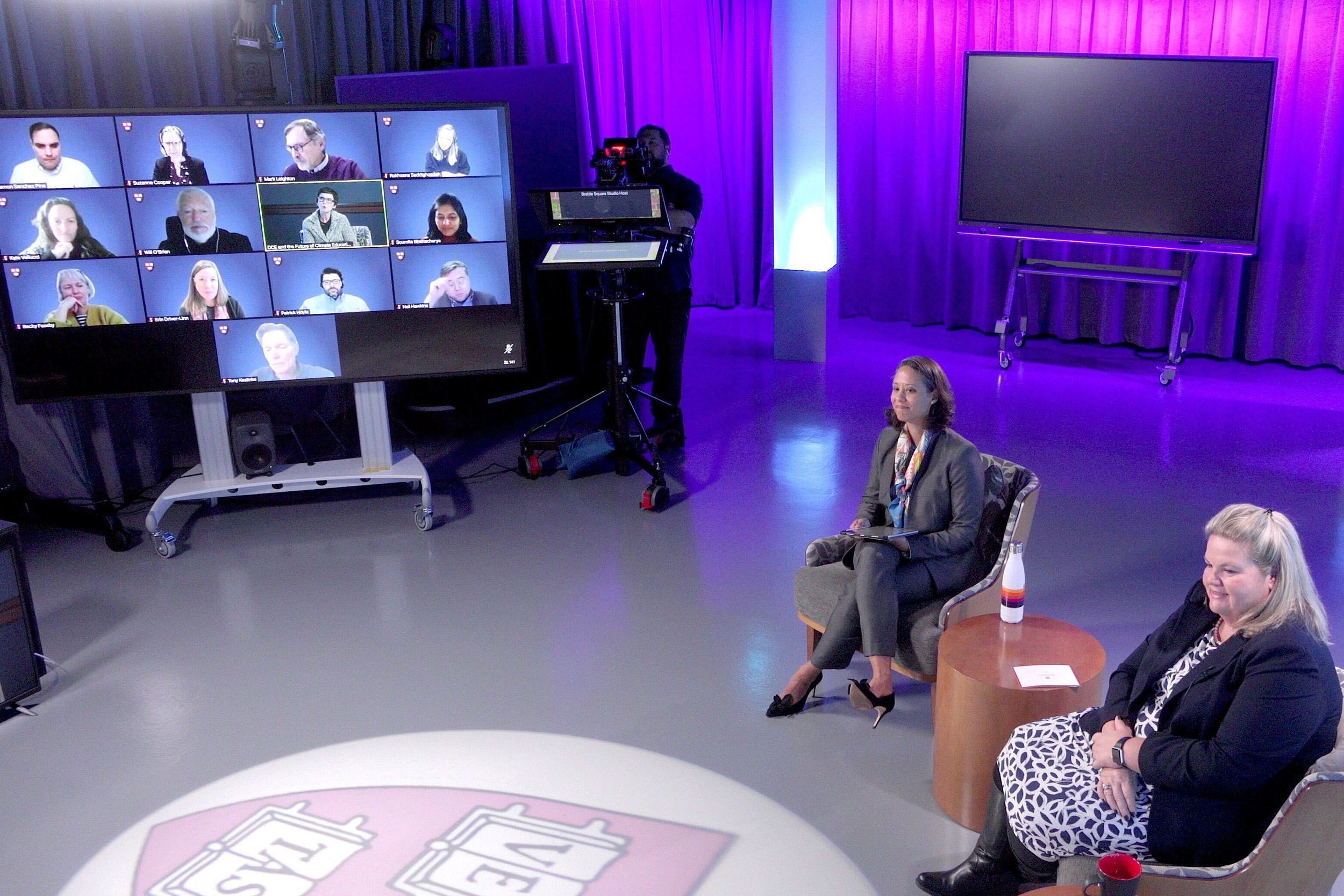
HES Sustainability Degree Program Director Lindi von Mutius (left) and DCE Dean Nancy Coleman watch forum attendees from the School’s studio.
Credit: Greg Aimo
Tackling climate change with ‘sleeves rolled up’
DCE forum explores climate education and students’ impact on change
The state of climate change and sustainability education at Harvard was the focus of a virtual forum hosted by the Division of Continuing Education and Harvard Extension School.
Attracting more than 400 members of the Harvard community, participants heard from the leadership of several Schools who explored how faculty and students are addressing the issue — just as world leaders met in Egypt for the COP27 climate summit.
Moderated by DCE Dean Nancy Coleman and HES Sustainability Degree Program Director Lindi von Mutius, A.L.M. ’12, “DCE and the Future of Climate Education” provided an opportunity to expand the reach of climate education at Harvard.
A featured video highlighted current degree candidates’ contributions to finding sustainable solutions. The students went on to lay out plans for environmental justice in their locales, how they’ve helped develop more sustainable cities, and the impact climate change is having on forced migration, food shortages, and water scarcity.
“In the words of a colleague, ‘Hope in the face of climate change is optimism with its sleeves rolled up,’” said von Mutius, echoing a poignant quote.
Suzanne Spreadbury, dean of academic programs and chief academic officer at HES, admired the direct impact students were making as they looked for solutions to climate change. Nearly 3,000 students took sustainability courses at HES last year, she noted, and with over 17 years of the sustainability master’s degree program at HES, the School has awarded more than 2,000 degrees and highlighted how students have created more than 500 sustainable action plans for businesses and organizations around the world.
Dustin Tingley, deputy vice provost for advances in learning and professor of government, said he was “blown away” by the culmination of data and cross-University cooperation in the reports he sees coming out of the University’s initiative.
It’s been encouraging to “hear all the different approaches to finding solutions,” that have come out of the Climate Research Clusters program, he said.
The forum explored what other affiliates at the University were doing to introduce more climate-based solutions into their studies. Suzanne Cooper, academic dean for teaching and curriculum and Edith M. Stokey Senior Lecturer in Public Policy at Harvard Kennedy School, explained how important it was for educators to bridge the gap between action and solutions. It is “very important to make the distance between classroom learning and real-world learning as small as possible,” Cooper said.
Let’s “meet learners where they are and connect them to the world,” Tingley added.



